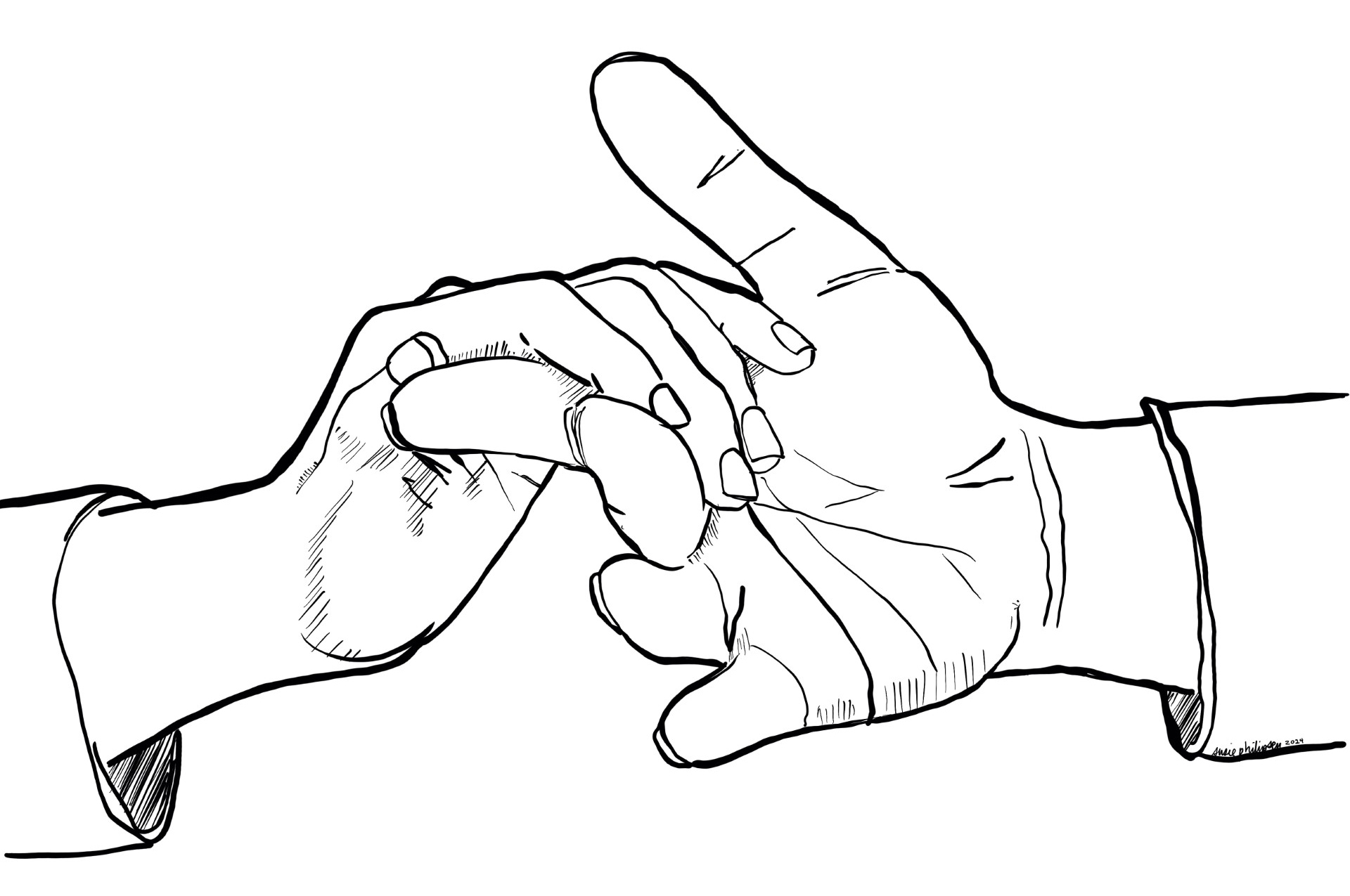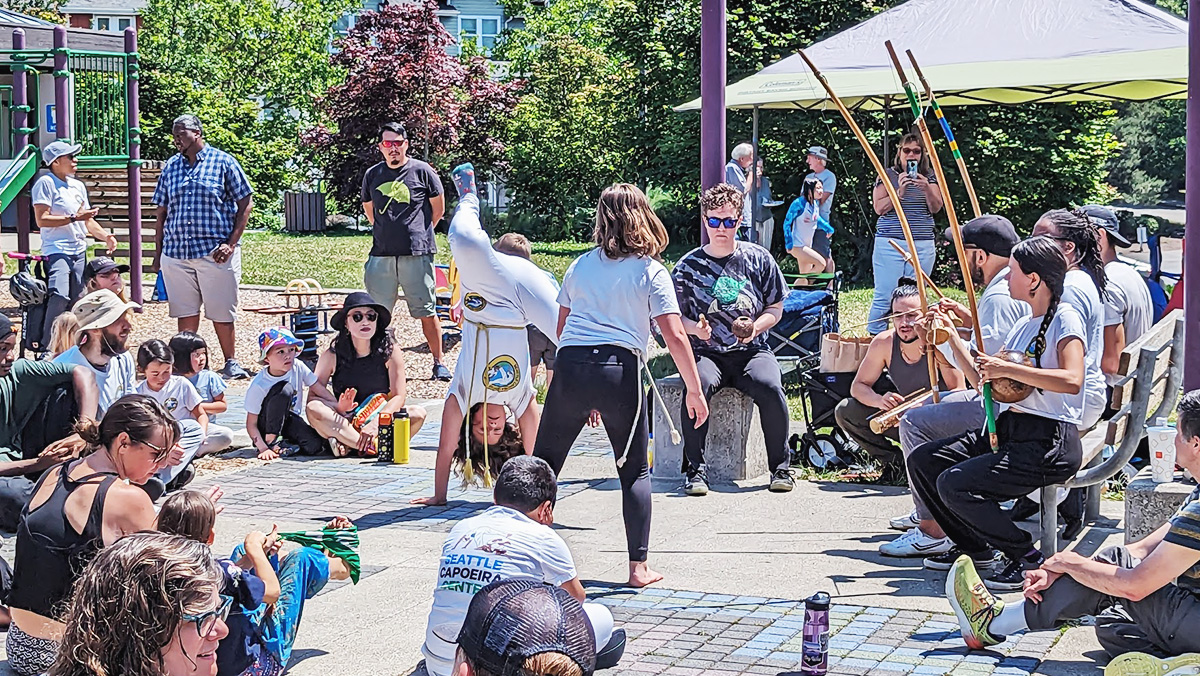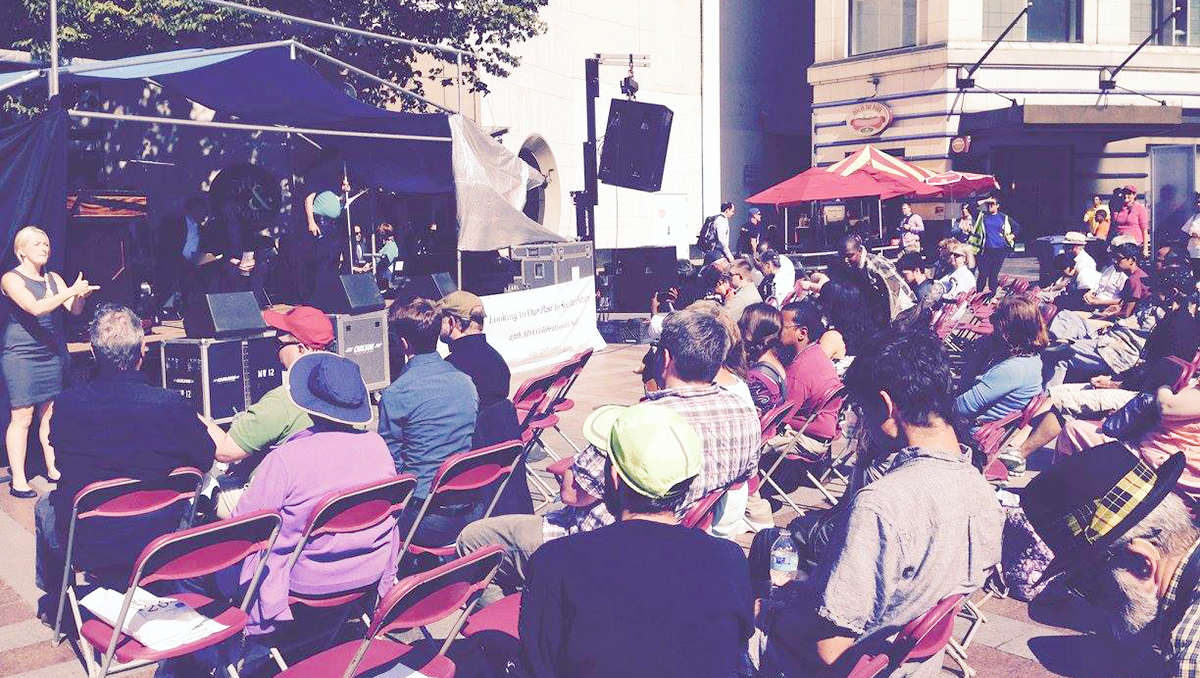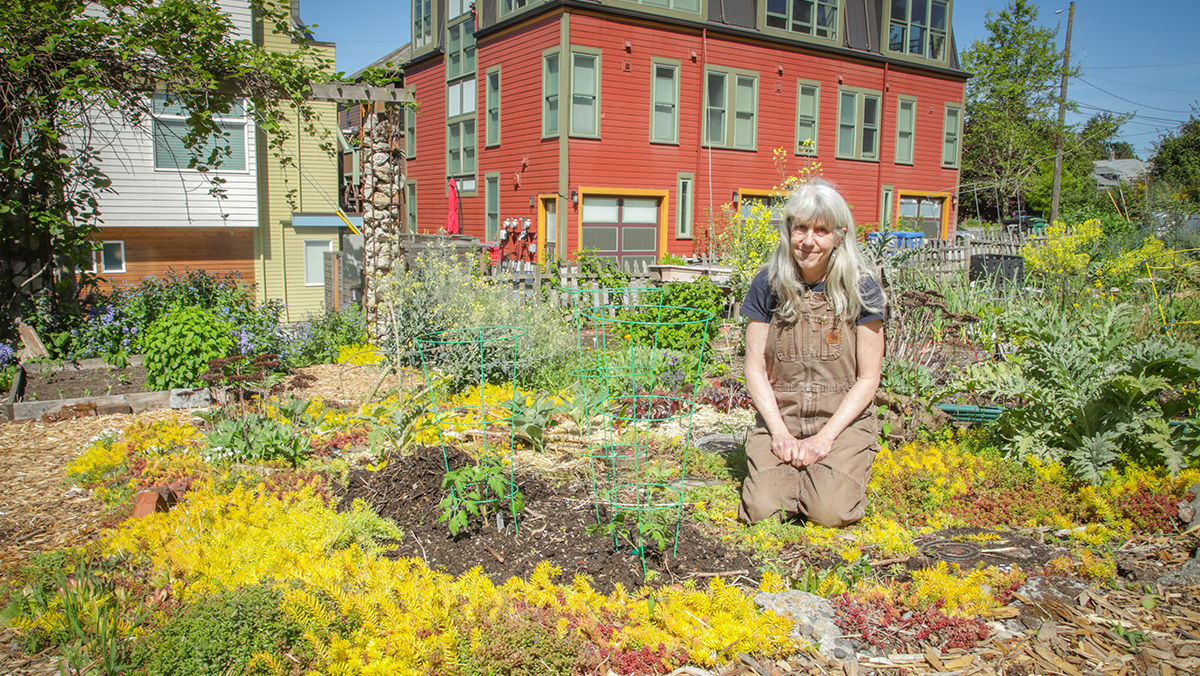
Shawn Young, Judkins P-Patch
How long have you been gardening at Judkins P-Patch and how did you get started?
I’m pretty sure I started in ’95 because that was the year we moved to this neighborhood. We’d moved here from Boston because we had a friend who had also lived in Boston with us, and he’d moved out here a year earlier. I checked this area out and was renting this house two blocks from the garden, and the landlord was an interesting character. He wanted to sell these two houses at a phenomenally low price. We’d been wanting to start a commune together, not in the city, but as it worked out, we had this property fall in our lap, so we moved here. But, we’re very commune oriented and we were immediately looking for opportunities to be involved in the community and the garden was so close. I love to garden, so I was impressed. I’d never even heard of community gardens! It’s awesome. I eventually got a plot, volunteered for the community council, things like that. As it turned out, this plot was in a lot of disrepair. There were also a lot of abandoned plots. We never had a waiting list. You could have two or three plots if you wanted just to keep them gardened.
You’ve been gardening here for a long time! How have you seen the garden and the neighborhood change?
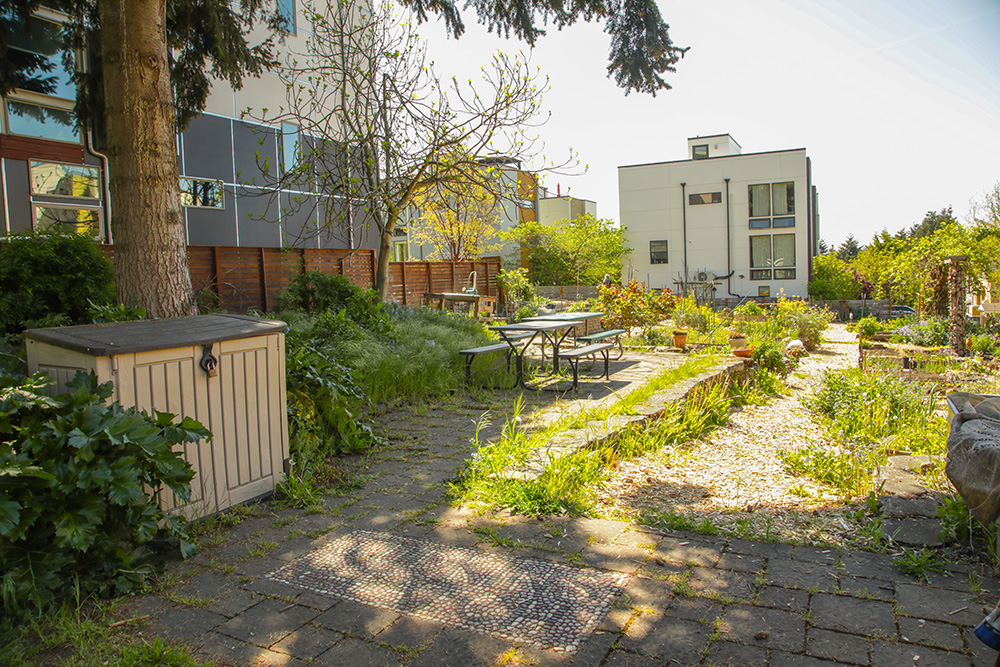
When I started here, the garden was about 10 years old. There was a single-family house over there (pointing south), and that whole property was covered with trees. This was a single-family house on the corner covered in trees, there was just lawn there. Most of these places were single-family homes. There wasn’t much. And then… I can’t remember the year, but it must have been five or 10 years into it when things really started to gentrify quickly here. That house went down, and that house went down. It was shocking how fast the landscape changed. There were even the remains of a house over there with a driveway that we finally had to jackhammer out of here.
The City was leasing the land the P-Patch was on, and it was private property. I don’t remember the exact money situation anymore, but the property was valued at something like $90,000 for the three city lots, I believe. Within the space of a year the value doubled, and the City started to look at accessing Judkins park to move the P-Patch over there. But there was a guy who was the site leader for a while who was very political and had plenty of time to schmooze. With the help of some of the other gardeners, he was able to raise money and get it purchased. It is kind of interesting to think like, it could be totally different. It would be sad to lose these spaces.
How has the garden community shifted over the past 28 years?
When I moved here, this neighborhood was, I’d say, 60 or 70 percent African American and now I think it’s 16 percent or something. And at that time we had, other than Peggy, I think almost no Black gardeners at all. Just her trying to reach out and then white people trying to reach out to the neighborhood. So, that has definitely shifted, which is great. The garden has diversified across the board. There are a lot more Asian gardeners, and I don’t know if that’s representative of the neighborhood necessarily but it’s great. It’s so interesting to see the different styles of gardening. There is one woman across the way from me who grew up in Laos on a farm and so she just brought so many amazing skills…I wish she could give us a tutorial. Just like the different strategies and structures of building trellises and things like that. It seems so simple, but then you see the production that comes and it’s incredible. I think that’s one of the coolest things about P-Patches, there is a wealth of knowledge from different parts of the world and different produce, you know? I’ve learned a lot about Asian vegetables, which I’m so grateful for. And some medicinal herbs and stuff too. It’s cool to see it in a garden and share knowledge, like even if you don’t necessarily speak the same language, I find that gardening can be that language.
Why do you think spaces like Judkins P-Patch and other community gardens are so important?
Yeah, they’re special little gems. I like living in a city, but you want it to be livable. Right? And not just for people, but trees and bugs and bunnies and pollinators too. It’s vital to the whole ecosystem whether we like to believe it or not. To claim some of this space, to hold this space -hopefully in perpetuity – for people to continue to be able to connect with the land feels so important. I think a lot of people do and would if they had the opportunity to. And I think demonstrating the importance of growing your own food and being connected to our food source. We count so much on bringing food up from Peru and Mexico, what if we just grew a lot more of our own here and quit having such a big carbon footprint? I work at a hospital, and we throw out 30-50 percent of the food and patients can order what they want and they’re still way over ordering. And you just, you read statistics about how much food we waste. It’s like if we knew more about where it came from or were more engaged with it, would we be a little bit more respectful?
I also think the Giving Garden program has been monumental. The P-Patch director, Kenya Fredie gardens here and she has been adamant in helping supply our fresh produce to food banks and meal programs. For people who are looking for that, who are in need, it’s absolutely critical. Access to fresh food is a barrier for way too many people and I don’t think people realize the impact it has. I worked at a group home for a long time. When I started there, three of the six people had lifestyle-dependent medical problems. Two of them had diabetes and one of them had high cholesterol and they were just in their 20s! There were no standards for the food, staff were just feeding them with StaffAid, we’re talking Wonder Bread and margarine, every meal. Eventually, there was a big turnover in staff and management, and we started focusing on serving healthier food. Eventually, we got all three of those people off meds, all of them. And they’re still off meds two decades later. I know it’s extremely powerful medicine. We should respect food more.
